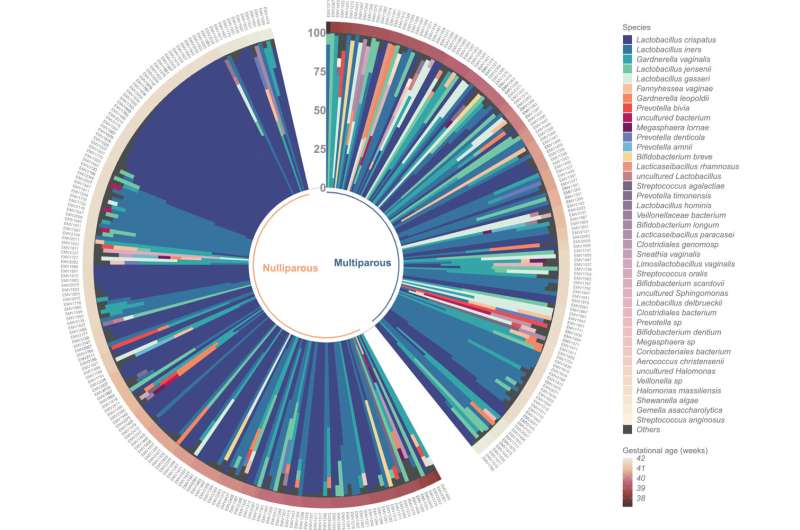
Vaginal microbiota reflects the regulation of the duration of gestation and the onset of labor. The microbiota may even have a direct effect on them, as indicated by a study conducted at the University of Helsinki and HUS Helsinki University Hospital.
According to the study, labor history affects the vaginal microbiota, with the associated mechanisms potentially being immunological.
“The vaginal microbiota correlates both with the duration of the current pregnancy and with any previous pregnancies and deliveries. The causalities of the findings and the mechanisms for the effect of previous deliveries on the microbiota will be investigated in further studies,” says Docent Anne Salonen from the University of Helsinki.
The regulation of gestational age and the onset of labor is poorly known. Now, the vaginal microbiota has been identified as a new relevant factor.
“In the future, it is important to investigate whether the identification and modification of the microbiota can provide therapeutic options. This could potentially result in the reduction of premature or post-term deliveries as well as related medical risks and costs,” says Docent Ilkka Kalliala from the University of Helsinki.
Variance in the dominant Lactobacillus species
The composition of the microbiota in late term or its role in post-term pregnancies and the onset of labor have previously remained largely unstudied.
The study, which was published in the eBioMedicine journal, investigated the composition of the vaginal microbiota of 324 Finnish women in gestational weeks 37–42 using 16S rRNA gene amplicon sequencing. The data were combined with background data from a questionnaire and clinical data obtained from patient record systems.
The vaginal microbiota composition in late term was largely explained by the duration of the current pregnancy, the number of previous pregnancies and whether the pregnancy ended in childbirth. In women who had not given birth, the dominant Lactobacillus species was Lactobacillus crispatus, while women who had given birth had a more diverse microbiota.
Source: Read Full Article
